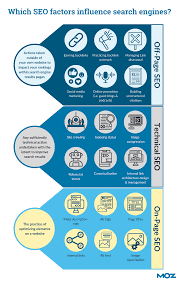
Search Engine Optimization (SEO) is the cornerstone of digital marketing strategies, allowing businesses to enhance their online visibility and reach their target audience effectively. To understand the impact of SEO, let’s delve into an example that showcases its transformative potential.
Imagine a small local bakery named “Sweet Delights” located in a bustling city. Despite offering delectable treats and exceptional customer service, the bakery struggles to attract new customers beyond its loyal clientele.
Recognizing the need to expand its reach, Sweet Delights decides to invest in SEO strategies to improve its online presence. Here’s how they go about it:
After implementing these SEO strategies consistently over a few months, Sweet Delights begins to witness remarkable changes in its online visibility and customer engagement:
This example illustrates how strategic implementation of SEO can elevate a small business like Sweet Delights from obscurity to prominence in the digital landscape. By harnessing the power of SEO techniques tailored to their specific needs, businesses can unlock growth opportunities and connect with their target audience effectively. Embracing SEO is not just about ranking higher on search engines; it’s about building lasting relationships with customers and establishing a strong online presence that stands the test of time.
To enhance your website’s visibility and improve search engine rankings, it is crucial to incorporate relevant keywords strategically within your website content. By conducting thorough keyword research and seamlessly integrating these terms into your web pages, you can signal to search engines the relevance of your content to users’ search queries. This practice not only helps attract organic traffic but also ensures that your website appears prominently in search results for relevant searches, ultimately driving more qualified leads to your site. Remember, using relevant keywords in your website content is a fundamental aspect of effective search engine optimization that can significantly impact your online presence and reach.
In the realm of Search Engine Optimization (SEO), one crucial tip is to optimize meta tags, including title tags and meta descriptions. These elements play a pivotal role in conveying the relevance and essence of a web page to search engines and potential visitors. By crafting compelling and keyword-rich title tags, businesses can improve their chances of ranking higher in search results, while well-crafted meta descriptions provide a concise summary that entices users to click through to the website. Optimizing these meta tags not only enhances visibility but also boosts click-through rates, ultimately driving more organic traffic to the site.
Creating high-quality and engaging content tailored to your target audience is a fundamental aspect of effective search engine optimization. By developing content that resonates with your audience’s interests, needs, and preferences, you not only provide valuable information but also enhance user experience and encourage organic engagement. Whether it’s informative blog posts, captivating videos, or interactive infographics, compelling content not only attracts visitors to your website but also keeps them coming back for more. In the realm of SEO, quality content reigns supreme as it not only boosts search engine visibility but also establishes credibility and trust with your audience.
Enhancing website loading speed is a crucial aspect of Search Engine Optimization (SEO) that directly impacts user experience. By improving the loading speed of a website, businesses can ensure that visitors have a seamless and efficient browsing experience. Faster loading times not only reduce bounce rates but also increase user engagement and satisfaction. Search engines like Google also prioritize fast-loading websites in their rankings, making it essential for businesses to optimise their site’s performance for better visibility and user retention. Prioritising website loading speed as part of SEO efforts demonstrates a commitment to providing an exceptional online experience for visitors, ultimately leading to improved search engine rankings and increased organic traffic.
Building backlinks from reputable websites is a crucial aspect of an effective search engine optimization strategy. By securing links from high-quality, authoritative sites, a website can enhance its domain authority and credibility in the eyes of search engines. These backlinks act as endorsements that signal to search algorithms the trustworthiness and relevance of the linked site, ultimately leading to improved rankings and increased organic traffic. Focusing on acquiring backlinks from reputable sources is a strategic approach that can significantly boost a website’s SEO performance and establish it as a valuable resource within its niche.
Internal linking is a crucial aspect of search engine optimization that not only enhances website navigation but also boosts SEO performance. By strategically linking relevant pages within your website, you can guide users to valuable content, improve their overall browsing experience, and establish a logical hierarchy for search engines to crawl and index your site effectively. Utilizing internal linking intelligently not only helps visitors discover more of your content but also signals to search engines the importance and relevance of specific pages, ultimately contributing to improved rankings and visibility in search results.
To maintain relevance and enhance search engine visibility, it is crucial to adhere to the SEO tip of regularly updating your website with fresh content. By consistently refreshing your website with new and engaging material, such as blog posts, articles, or product updates, you signal to search engines that your site is active and valuable to users. This practice not only attracts more organic traffic but also encourages return visits from existing visitors, ultimately contributing to improved search rankings and sustained online presence.
To ensure the effectiveness of your SEO efforts, it is crucial to monitor and analyse your performance regularly using tools such as Google Analytics. By tracking key metrics like website traffic, user behaviour, and conversion rates, you can gain valuable insights into the impact of your SEO strategies. Google Analytics provides detailed reports that help you identify strengths, weaknesses, and opportunities for improvement, allowing you to make informed decisions to enhance your search engine visibility and drive meaningful results for your business. Monitoring and analysing your SEO performance with precision is the key to refining your approach and staying ahead in the competitive online landscape.